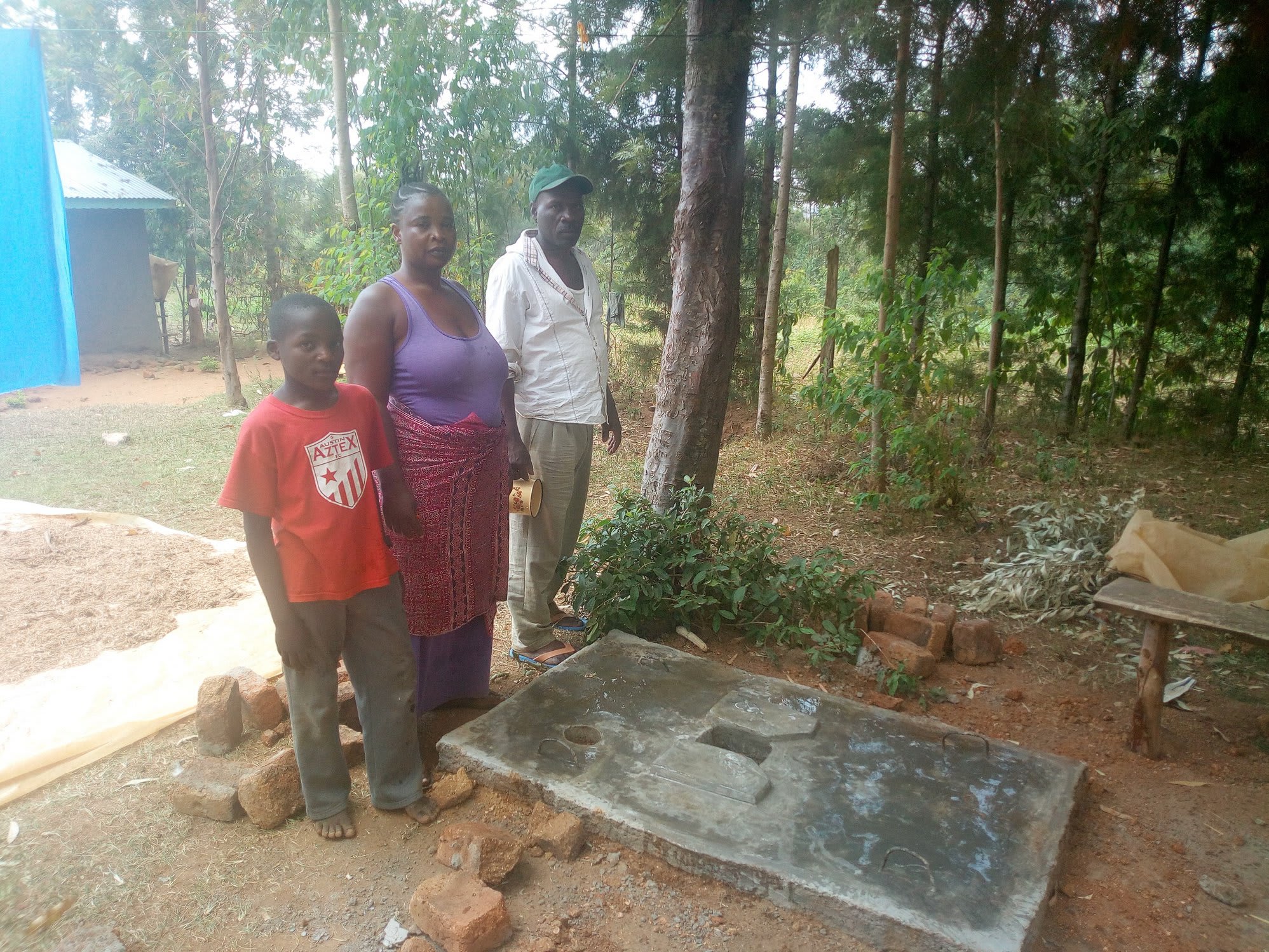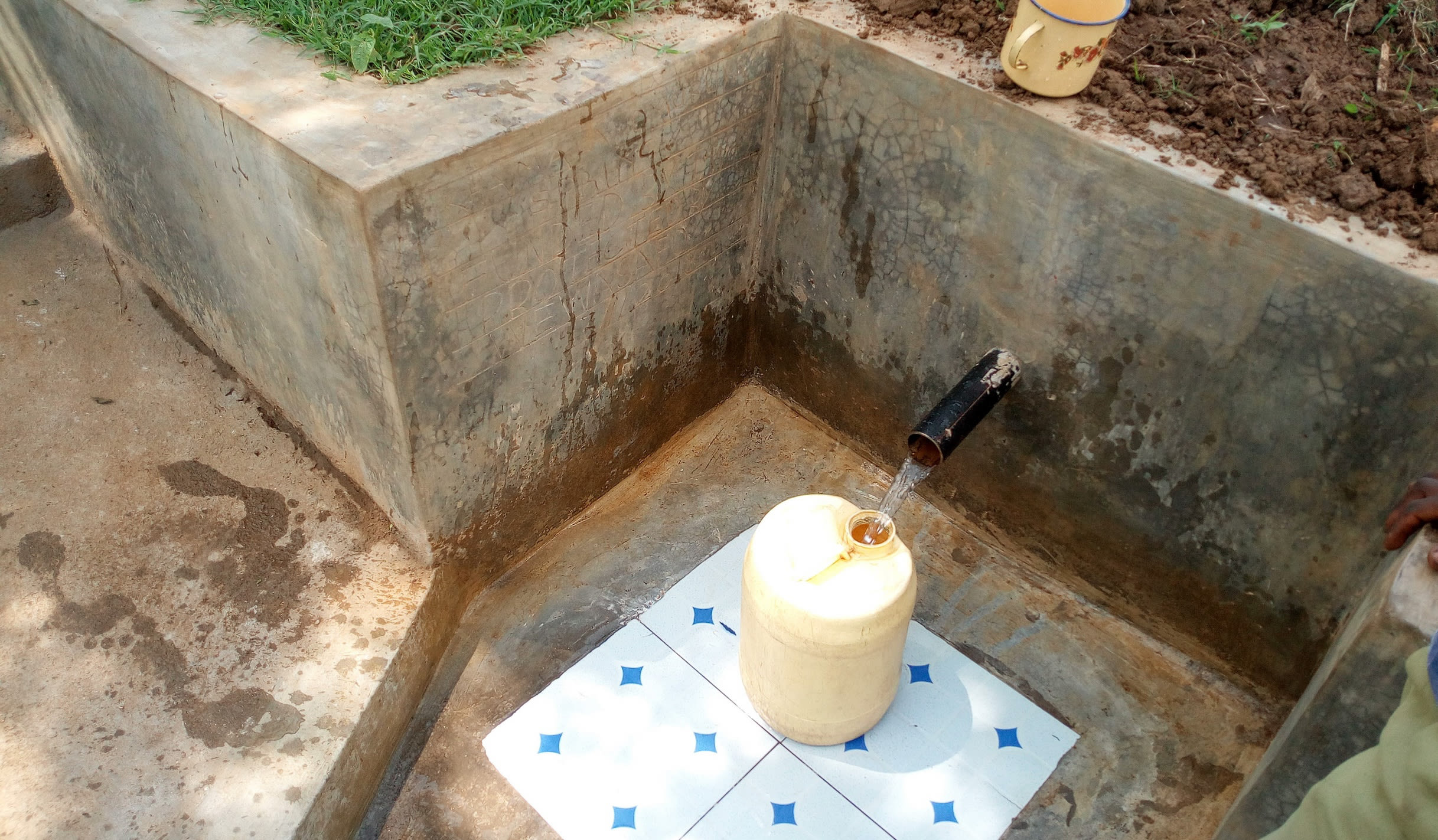A day starts at 6am when the women get up and go out to milk the cows. After some cleaning chores, they prepare breakfast and get their children out for school. The men leave for the nearest shopping center, most of them being motorbike operators who taxi people for extra income. The women spend the bigger part of their days on the farm.
Sugarcane is planted on a large scale, but it's still not enough for supporting an average family. Both women and men have to take odd jobs throughout the year.
Water
Khamala Spring is the only water source in this part of Shibuli. Women and children go their with their jerrycans to fetch drinking, cooking, and cleaning water for their families. They also have to bring along a smaller container to bail water, since the jerrycan can't dunk all the way around the surface.
This water is so contaminated, with debris visibly floating on the surface. The spring is located in a grassy area, and anything that falls in the water has to be sieved out.
Mr. Danial Khamala said, "The current health situation is very bad. Since it is the rainy season, mosquitoes breed in any pool of stagnant water and we get sick. The spring we have is like a deposit for all sorts of dirt due to surface runoff, though the water is now in plenty, it's safety for use is the main problem - we do not know how to manage."
Sanitation
Over half of households around Khamala Spring have a pit latrine made of mud. These don't have doors for privacy, and some are falling apart. Open defecation is an issue; sometimes the oldest and youngest of people prefer the privacy behind bushes when contrasted with the smell and danger found when using a pit latrine.
Here's what we plan to do about it:
Training
Community members will attend hygiene and sanitation training for at least two days. This training will ensure participants have the knowledge they need about healthy practices and their importance. The facilitator plans to use PHAST (Participatory Hygiene and Sanitation Transformation), CLTS (Community-Led Total Sanitation), ABCD (Asset-Based Community Development), group discussions, handouts, and demonstrations at the spring. One of the most important topics we plan to cover is open defecation and its dangers, as well as having and using a pit latrine.
Training will also result in the formation of a committee that will oversee operations and maintenance at the spring. They will enforce proper behavior around the spring and delegate tasks that will help preserve the site, such as building a fence and digging proper drainage. The fence will keep out destructive animals, and the drainage will keep the area’s mosquito population at a minimum.
Sanitation Platforms
On the final day of training, participants will select five families that should benefit from new latrine floors.
Training will also inform the community and selected families on what they need to contribute to make this project a success. They must mobilize locally available materials, such as bricks, clean sand, hardcore, and ballast. The five families chosen for sanitation platforms must prepare by sinking a pit for the sanitation platforms to be placed over. All community members must work together to make sure that accommodations and food are always provided for the work teams.
Spring Protection
Protecting the spring will ensure that the water is safe, adequate and secure. Construction will keep surface runoff and other contaminants out of the water. With the community’s high involvement in the process, there should be a good sense of responsibility and ownership for the new clean water source.
Fetching water is predominantly a female role, done by both women and young girls. Protecting the spring and offering training and support will therefore help empower the female members of the community by giving them more time and efforts to engage and invest in income-generating activities.
This project is a part of our shared program with Western Water And Sanitation Forum (WEWASAFO). Our team is pleased to provide the reports for this project (edited for readability) thanks to the hard work of our friends in Kenya.



 Rehabilitation Project
Rehabilitation Project






































